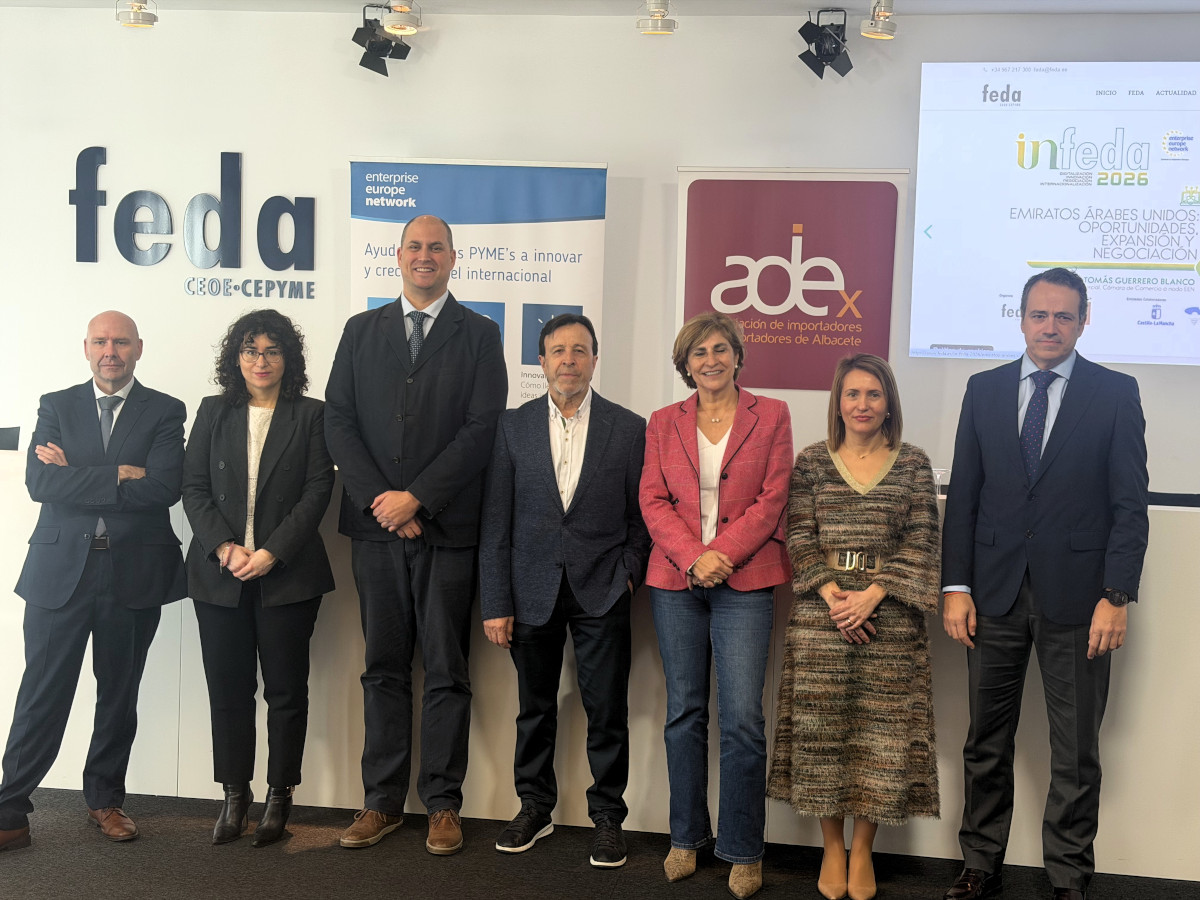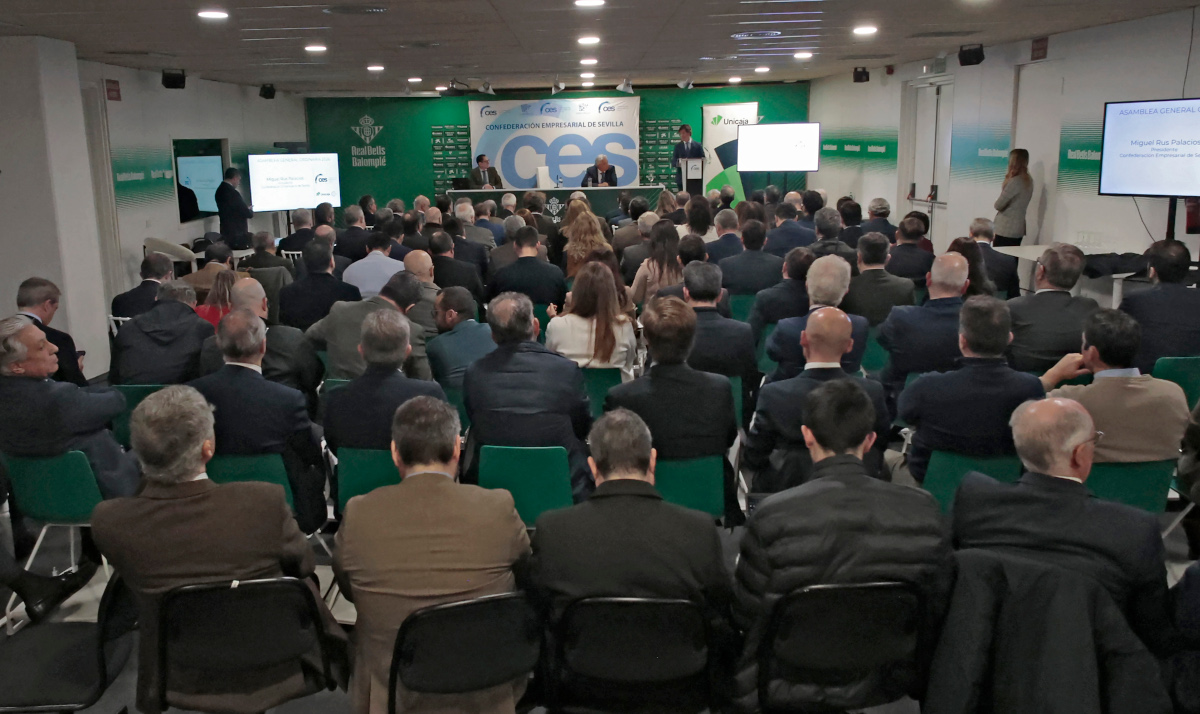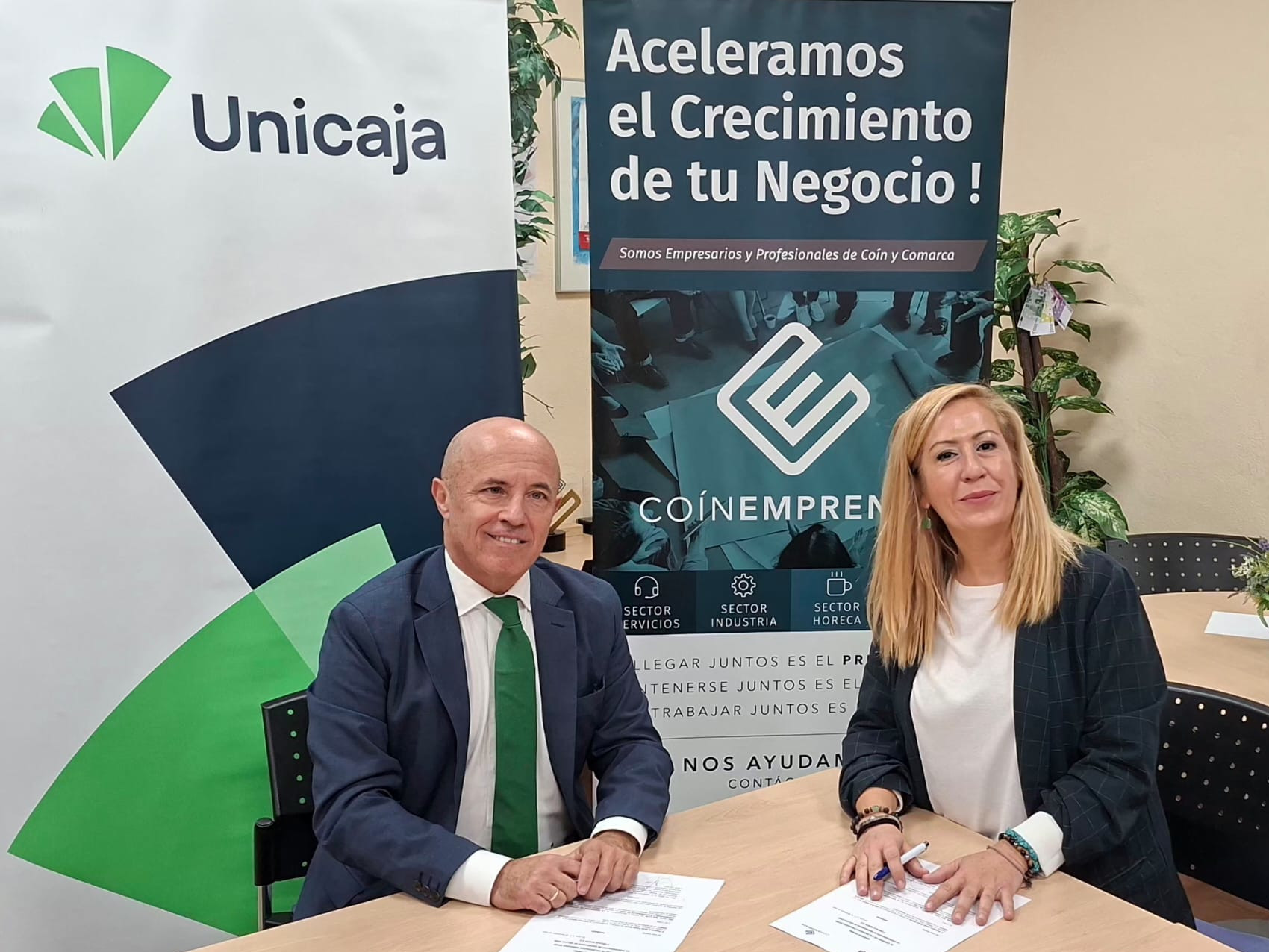Grupo Unicaja Banco posts, in the nine months to September 2020, a net profit of €77 million, after booking extraordinary provisions for €166 million to cover the potential economic impact of the pandemic. Excluding these extraordinary provisions, the 3Q results would have reached €194 million, up 21.7% on to the same period of the year 2019.
The main keys of Unicaja Banco results in the first nine months have been: i) the capacity to generate profit –which allows to mitigate the impacts of the COVID-19-; ii) the growth in the activity; iii) the ongoing decrease in operating expenses; iv) the decrease in non-productive assets, reinforcing the high coverage levels; and v) the high solvency and liquidity ratios, along with the strengthening of the capital ratios, which confirm the bank’s strength to face the current situation, and to continue providing support to its customer in the current difficult context.
Unicaja Banco has been able to revert the negative effects of the state of emergency on its core revenues (net interest income + fees), which grows by 8.9% in 3Q, quarter-on-quarter. The said improvement is seen both in the net interest income (+9.2%) and in fees (+8.1%).
On the other hand, cost containment remains one of the pillars of the banks’ management, with a reduction in operating expenses, both year-on-year (-5.5%) and quarter-on-quarter (-0.2%). All of the above has made the bank to improve its core result (core revenues – transformation expenses) by 8.9% year-on-year. The worsening in the economic conditions has not prevented Unicaja Banco from continuing to reduce its NPAs, significantly increasing the high level of coverage and its already sound solvency and liquidity positions, maintaining a remarkable strength in the uncertain economic scenario. In this sense, at the end of the third quarter of the year, the CET-1 ratio stands at 16.3%[1], and the total capital, at 17.8%1, among the highest in the sector, with a surplus of €1,264 million above the SREP requirements.
In this new scenario, Unicaja Banco continues providing support and responding to the needs of individuals, businesses and the self-employed, and especially to the most vulnerable groups, by adopting flexible measures and solutions, participating in the Government and sectorial initiatives, and boosting several action protocols to ensure the service and to reinforce the protection and safety of customers and employees. So far, the bank has approved more than 11,500 applications, from freelancers and business, for ICO-backed loans, for an approximate amount of €850 million, and it has processed more than 21,500 moratorium applications –both legal and sectorial for mortgage and personal loans- for an approximate credit amount of €875 million.
Results generation capacity
In the uncertain existing context, Unicaja Banco has focused on reinforcing its good starting position, booking extraordinary provisions for €166 million to tackle with guarantees the uncertainties on the evolution of the pandemic and its potential effects, making the net profit to stand at €77 million. This result, without the said extraordinary provisions, would have reached €194 million, with a y-o-y growth of 21.7% and a ROE (return on equity) of 6.5%.
The key factors behind those results are the improvement in the core revenues, up 8.9% in 3Q, following the impact of the lockdown in 2Q, as well as the ongoing effort to contain expenses and the high levels of portfolio provisions, which allow the bank to maintain the need for recurring impairments in low levels.
As it has been said above, income has grown significantly in the third quarter of the year, with a substantial increase of the net interest income (9.2% quarter-on-quarter), due to lower cost of funding both in retail and wholesale. The decrease in retail costs, as high yield deposits mature, which will continue until mid-2021, has contributed, together with the maintenance of loan yield, to the improvement of customer spread. On the other hand, wholesale funding costs improve due to the contribution of the new TLTRO contributions.
Additionally, net fees increase by 8.1% in the quarter, boosted by payment and collection services, as well as by the contribution of AuM and insurance to the section of brokerage and non-banking products.
The bank has continued with its process to contain and reduce expenses, which has resulted in a q-o-q reduction of 0.2% in operating expenses, placing the year-on-year decrease in 5.5%. With all the above, the bank’s core result has grown by 8.9% year-on-year.
Finally, it should be mentioned that, excluding the mentioned extraordinary provisions of €166 million, impairments and other results have been 50% lower than in the same period of the previous year. Impairments for foreclosed assets remain in similar levels, whereas provisions and other results decrease substantially. Focusing on the loan portfolio recurring impairments, cost of ordinary risk amounts to 13 basis points, an amount similar to that of 3Q2019. This evolution of ordinary credit impairments reflects the bank’s assets quality and their high coverage.
Boost to the commercial activity: growth in lending and customer funds
The Group’s commercial activity, although impacted by the COVID-19 crisis, started its recovery in the third quarter. In this sense, even if performing credit to the private sector decreases by 0.8% in the year, it grows by 6.3% in businesses. This increase is due both to the new lending to businesses, boosted in recent months by the offering of special financing lines to mitigate the consequences of the pandemic, and to the higher use of credit account lines and other facilities available. Additionally, customers funds have grown by 5.1% year-on-year and by 1.3% quarter-on-quarter. On-balance sheet customer funds also present a positive evolution, with a growth of 8.1% year-on-year, 5.9% year-to-date and 0.9% quarter-on-quarter. Off-balance sheet funds and insurances grow 2.4% in the third quarter, and balances of public administrations (+16.4%) and sight deposits (+1.2%) should also be mentioned.
Despite the fact that the evolution of new lending has been affected by the lockdown, this is recovering in the third customers in the area of lending to individuals, with a 90% growth. The evolution of lending to corporates is affected by the reduced demand in the quarter of ICO-backed loan.
Ongoing decline in NPAs, with high coverage
The sustained reduction of NPAs (NPL plus foreclosed real estate assets) has allowed Unicaja Banco to reduce it gross exposure by €304 million (-11.2%) over the last twelve months, with decreases of -18% in NPLs and of -1.8% in foreclosed assets. The Group’s balance of NPLs, at the end of 3Q2020, fell to €1,290 million and that of foreclosed assets reached €1,117 million. The fall in NPLs results in a decrease in the NPL ratio of -0.8 p.p. in the last twelve months, down to 4.6%. In the third quarter, NPAs fall by 2.2%.
In this context of uncertainty, the substantial increase in the already high coverage levels is to be remarked. The NPA coverage ratio has increased by 7.9 p.p. year-on-year and by 2.9 p.p. quarter-on-quarter, standing at 64.5%. The said increase is due mainly to the extraordinary provisions made to cover the foreseeable negative consequences of the pandemic on asset quality, which at Unicaja Banco, so far, have not been observed.
The balance of NPAs, net of provisions, stood at €855 million, what represents 1.4% of the Group’s total assets as at the end of the third quarter of 2020, with a 0.7 p.p. decrease over the last 12 months.
Strong solvency levels and comfortable liquidity
In terms of solvency, Grupo Unicaja Banco has improved its position, as at the end of 3Q2020, having a CET-1 ratio of 16.3%(*), and a total capital ratio of 17.8%, among the highest in the sector and with a year-on-year increase of 0.9 p.p. and 2.2 p.p. respectively. These capital ratios involve an excess of the SREP total capital requirements of €1,264 million.
In fully loaded terms (according to the calculation once the transitional period of the solvency regulations has expired), Unicaja Banco has a CET-1 ratio of 14.7%(*) and a total capital ratio of 16.2%(*). This represents a year-on-year increase of 0.2 p.p. in the CET-1 ratio and of 2.3 p.p. in the total capital ratio.
The positive levels of coverage, solvency and balance sheet quality are also reflected in a further improvement of the Texas ratio (indicator measuring the percentage of NPLs and foreclosed assets over TBV plus NPL and foreclosed assets provisions). This ratio improved to 43.7%, after a y-o-y decrease of 6.2 p.p.
Unicaja Banco maintains solid liquidity positions, as well as a high degree of financial autonomy. In this sense, the available liquid assets (public debt mainly) and discountable at the ECB, net of the used assets, amount to €15,700 million as at the end of September 2020, representing 25.4% of the Group’s total balance sheet. Likewise, customer funds with which the company finances itself exceed largely its lending, as reflected by the loan to deposit (LTD) ratio, which stands at 66.7%. Finally, the regulatory LCR ratio, which measures the volume of available liquid assets over net cash outflows over a 30-days period, stands in September at 311%, equivalent to more than three times the regulatory limit, set in 100%.
The existing capital and liquidity surplus place Unicaja Banco in a solid position to face the uncertainties posed by the worsening of the incidence of the pandemic in recent months.
Boost to digital banking and green products
During 3Q2020, Unicaja Banco has continued working in the development and implementation of its Strategic and Transformation Plan 2020-2022, which includes, inter alia, transformation and commercial dynamism plans designed with focus on the customer.
Within the framework of the transformation plan in force, Unicaja Banco has continued progressing in digital banking, both with the attraction of new customers online, and with the new digital banking (web and app), with special focus on user experience. This is scheduled to be available to all customers at the end of the year, although it is being partially used in a first phase. The new digital banking has been developed under new integration and development infrastructures. It is expected to carry on with improvements both in functionalities for day-to-day transactions and for the sale of products and services.
At the end of the third quarter of 2020, the number of digital customers (web and app) represented 54% of the total. In 2020, with regard to the channels used by customers, of the total of financial transactions and consults, the higher weight corresponds to digital transactions, both via web and app (55% of the total), 22% were made through PoSTs, 17% at branches and 6% at ATMs.
Also within the framework of the transformation plan, the bank has continued working on a more advanced use of technology, to offer a better service and relation with customers and to incorporate a higher efficiency in the internal processes.
On the other hand, regarding the commercial offering, Unicaja Banco has recently launched the Préstamo Motor Eco Verde (Eco Green Motor Loan), the bank’s first sustainable loan, for the acquisition of environment-friendly green vehicles.
Support to individuals, freelancers and businesses to face the COVID-19
Since the outbreak of the COVID-19 pandemic, Unicaja Banco has implemented a set of actions to reactivate the economy and to provide support to families and businesses. In that sense, the bank takes part in the measures to provide liquidity and funding with the guarantee of the State, of the Junta de Andalucía, Gobierno de Extremadura, or of specialized companies like Garántia, Iberaval or Extraval. So far, the bank has approved more than 11,500 applications from freelancers and businesses for ICO-backed loans, for an approximate amount of €850 million, and more than 21,500 moratorium applications for mortgage and personal loans, both legal and sectorial, have been processed, for an approximate amount of €875 million.
During this period, Unicaja Banco has offered, among other actions, measures adopted by the Government for those in a situation of vulnerability, such as the repayment holiday for mortgages and non-mortgage loans, or the rent payment holiday in the case of main residence.
The bank has also implemented the sectorial moratoria on mortgages and loans under the sectorial agreement approved by CECA.
In the third quarter, Unicaja Banco has made available to its customers the mortgage moratorium for the touristic sector, as well as the moratorium for the sector of public transportation of goods and private transportation of travelers by bus.
In order to help those in a situation of vulnerability and to adapt to the needs of customers, Unicaja Banco has brought forward the payment of unemployment benefits and pensions. It continues to apply measures to facilitate contactless payment, and the holders of life and accident insurances have the possibility to split the payment of insurance premiums at no cost.
Sustainable finances
Unicaja Banco has continued to develop actions in the exercise of its Corporate Social Responsibility (CSR) and sustainable and responsible banking in the third quarter of 2020, such as:
- Start of the implementation of the Action Plan on Sustainable Finances, integrated by 21 measures, following its approval in June. The goal of the Plan is to guide the transition of Unicaja Banco towards a model including topics related to sustainability in four areas: business models and strategy; governance and risk management; risk management –especially climatic and environmental risks-; and dissemination of information.
- Unicaja Banco, as a signatory of the Global Compact, has joined the ‘Statement from Business Leaders for a Renewed Global Cooperation’, promoted by the UN Global Compact on the 75th anniversary of the UN and the 20th of the Global Compact, and aimed at uniting businesses in favour of a global cooperation based on the respect to human rights and sustainable development, as well as on ethical leadership and good governance.
- Unicaja Banco and the University of Malaga (UMA) have signed an agreement which will allow the academic institution, with the support of the bank, to start a lab to carry out PCR test for the coronavirus.
- The Edufinet Project on financial education has continued developing its activities online. In October, it has participated in the National Financial Education Week, an initiative promoted by the Bank of Spain and the Comisión Nacional del Mercado de Valores (CNMV).
- Regarding financial inclusion, Unicaja Banco has undertaken to install ATMs in 19 villages in Almeria which have no bank offices, after being chosen in a public tender called by the Diputación Provincial.
Descarga aquí los gráficos y tablas asociados a la nota de prensa.


